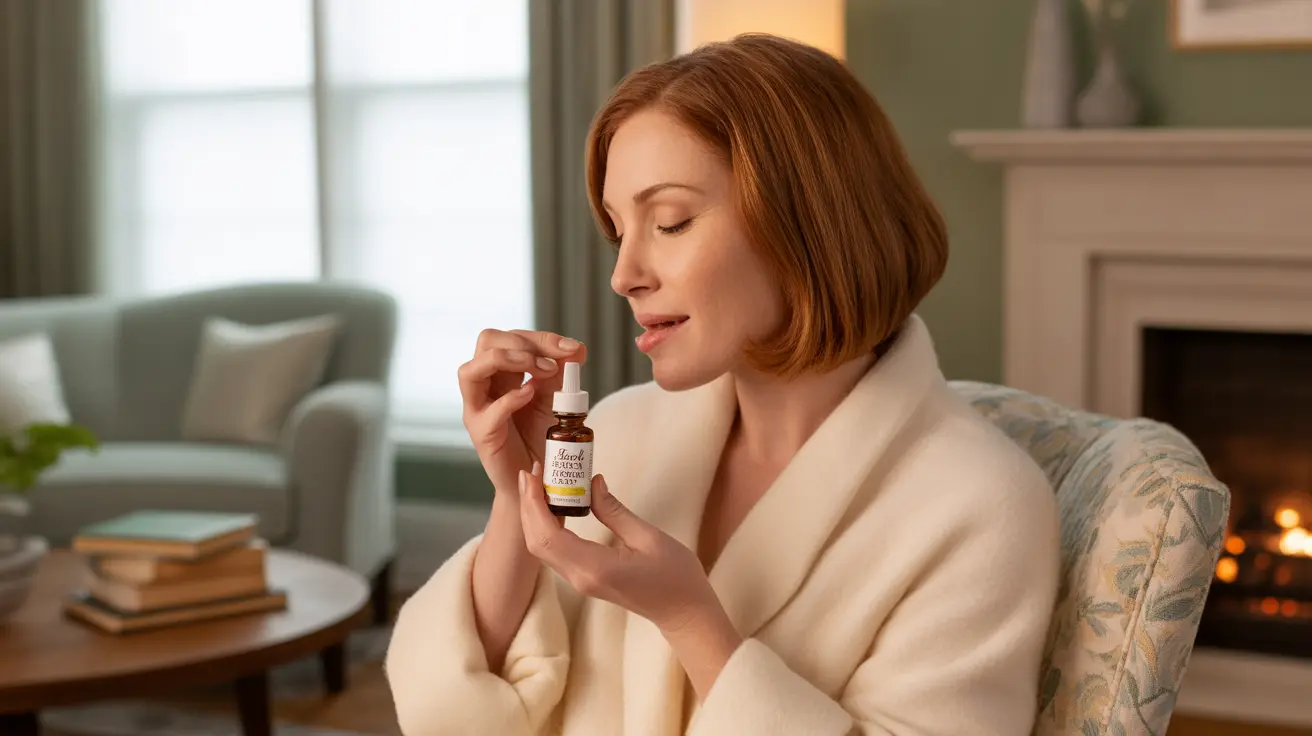For those seeking natural anxiety relief, Bach's Rescue Remedy has become a popular choice among stress management options. This flower essence blend, developed by Dr. Edward Bach in the 1930s, claims to provide calm during moments of emotional distress. But what does the evidence say about its effectiveness for anxiety?
Understanding Rescue Remedy
Rescue Remedy is a combination of five flower essences: Rock Rose, Impatiens, Clematis, Star of Bethlehem, and Cherry Plum. Each essence is believed to address different emotional states, from panic to mental absence. The formula comes in various forms, including drops, sprays, and pastilles.
The Science Behind Flower Essences
While flower essences have been used for decades, scientific research on their effectiveness is limited. The proposed mechanism involves subtle energy patterns from the flowers affecting emotional well-being, though this concept isn't widely accepted in conventional medicine.
Research on Rescue Remedy's Effectiveness
Clinical studies examining Rescue Remedy's impact on anxiety have shown mixed results. Some small-scale studies suggest modest benefits in reducing acute stress and anxiety symptoms, while others indicate effects similar to placebo. The most substantial benefits appear to be reported in cases of situational anxiety rather than chronic anxiety disorders.
Proper Usage Guidelines
For those interested in trying Rescue Remedy, proper usage is essential for optimal results. The traditional method involves placing 4 drops directly on the tongue or in water, taken as needed during stressful situations. Some users report benefits from regular daily use, while others reserve it for specific anxiety-inducing events.
Recommended Dosage
The standard recommendation includes:
- 4 drops taken directly on the tongue
- Can be repeated up to 4-6 times daily
- May be added to a glass of water
- Can be used as needed during acute stress
Safety Considerations
Rescue Remedy is generally considered safe, containing minimal active ingredients and preserved in a brandy-based solution. However, users should be aware of certain considerations before starting use, particularly if they have specific health conditions or are taking medications.
Important Safety Notes
Key safety points include:
- Alcohol-free versions are available for those avoiding alcohol
- No known drug interactions, but consult healthcare providers
- Generally considered safe for most populations
- Should not replace prescribed anxiety medications without medical consultation
Frequently Asked Questions
Does Rescue Remedy effectively reduce anxiety compared to a placebo?
Research shows mixed results, with some studies indicating modest benefits over placebo for acute anxiety, while others show similar effects to placebo. Individual responses may vary, and more extensive research is needed for definitive conclusions.
How should Rescue Remedy be used to relieve anxiety and stress?
Take 4 drops directly on the tongue or diluted in water, up to 4-6 times daily. It can be used either preventatively before stressful situations or as needed when anxiety occurs.
Can Rescue Remedy cause any side effects or interact with medications?
Rescue Remedy has minimal reported side effects and no known significant drug interactions. However, those sensitive to alcohol should choose alcohol-free versions, and it's wise to inform healthcare providers about its use.
Is Rescue Remedy safe to use during pregnancy or breastfeeding?
While Rescue Remedy is generally considered safe, pregnant or breastfeeding individuals should consult their healthcare provider before use and consider alcohol-free versions if approved.
For what types of anxiety or stress might Rescue Remedy be most helpful?
Rescue Remedy appears most effective for situational anxiety, such as before public speaking, exams, or other stressful events. It may be less effective for chronic anxiety disorders requiring professional medical treatment.
Understanding Rescue Remedy's potential benefits and limitations can help individuals make informed decisions about incorporating it into their anxiety management strategy. While it may provide relief for some, it should be considered as part of a comprehensive approach to managing anxiety, which may include professional medical care when needed.




